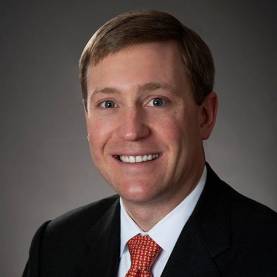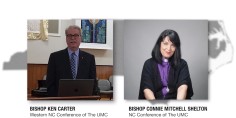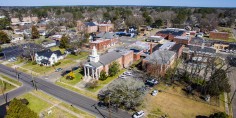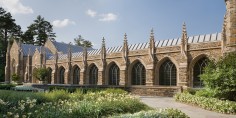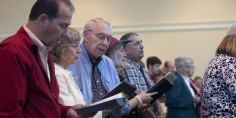In May 2023, Trustees of The Duke Endowment approved a $10.5 million grant to be distributed between the two conferences of the United Methodist Church to strengthen existing congregations and support the creation of new United Methodist faith communities within the conferences. This funding is intended to allow churches to really dig in and explore new and creative ways of doing ministry. Some of those approaches will be successful and we’ll want to replicate them, and some won’t be as successful and that’s fine. We’ll learn from them and apply our learnings.
In upholding the original intent of our founder, Mr. James B. Duke, the Endowment recognizes that congregations of the United Methodist Church play an important role in communities, yet they may not always see their significance. We know from a recent study conducted by Partners for Sacred Places that the median contribution to North Carolina communities by rural churches is nearly $365,000 per year. Programs may begin in a church, expand across a community and sometimes even become established as independent nonprofits. This includes establishments such as childcare centers, schools, affordable housing ministries and food ministries that start in one of these churches and then end up becoming a larger entity. Church is also a place where we can be in relationship with one another, and as human beings, we are meant to be in relationship with one another.
So, what we hope this grant says to existing members of the United Methodist Church is we see you, we’re proud of you and the ministry you’ve done and continue to do. We want to honor that and acknowledge that and encourage you to keep going in the ministries you’re engaged in as you simultaneously think about new ones. And in that creative process, we believe you’ll open the door to new members wanting to come in to be part of the energy, to be part of the excitement, to be part of what’s going on in these places and contribute to that sense of renewal that is at the heart of United Methodism. This grant is intended to provide inspiration and bring hope. Hope is gritty. Hope knows it can be disappointed and yet it still stands in there and does the work needed to bring about a new future. The North Carolina and Western North Carolina annual conferences and their leadership are committed to that work. We are too.
